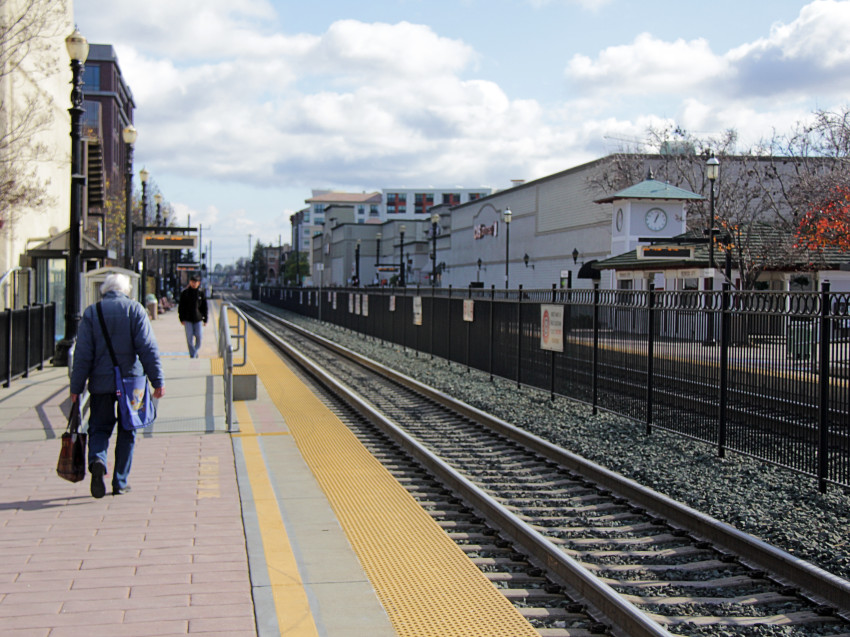Caltrain’s lifeline tax measure “is now dead,” according to San Mateo County Supervisor Dave Pine, “which puts the railroad in great peril.”
The grim comments Tuesday followed the latest development in an ongoing impasse between San Mateo County and neighboring San Francisco and Santa Clara counties over the future governance of Caltrain.
Transit advocates hope to place a long-planned 1/8-cent sales tax measure on the Nov. 3 ballot that would raise about $108 million annually for Caltrain, which relies heavily on ticket sales and has no dedicated source of funding. Officials say the transit agency could be forced to shut down following a 95 percent drop in ridership during the COVID-19 pandemic.
The 30-year tax proposal cannot make it to the ballot without the support of all three counties where Caltrain operates. While San Mateo County has pledged support for the measure as initially proposed, leaders in Santa Clara and San Francisco have declined to do the same without changes to Caltrain’s current governance.
While all three counties have representation on the Peninsula Corridor Joint Powers Board, which governs Caltrain, leaders in Santa Clara and San Francisco want more say over the operations of Caltrain, which is managed by the San Mateo County Transit District, or SamTrans.
On Tuesday, the San Francisco Board of Supervisors voted in favor of an alternative November tax measure that would tie up most of the revenue generated from the 1/8 cent sales tax until an agreement is reached on Caltrain’s governance. As part of the plan, up to $40 million in revenue collected in the first year would go to Caltrain to cover COVID-related fare losses, as well as to offset annual contributions by the member counties. The rest would be held in a special escrow account that can be disbursed by the Joint Powers Board, although spending measures would be contingent upon supermajority approval.
Santa Clara County is reportedly expected to vote on a similar measure on Aug. 6, which is the deadline date for qualifying a ballot measure.
However, San Mateo County leaders are vehemently opposed to the proposal by neighboring counties, saying it violates state legislation that made the sales tax measure possible.
In 2017, Senate Bill 797, authored by Sen. Jerry Hill, paved the way for Caltrain to put an 1/8 cent sales tax measure before voters. The tax proposal was initially viewed as a measure to enhance Caltrain service, but is now also viewed as a pandemic rescue package.
“The statute requires that, if the ballot measure passes, the tax money go to Caltrain,” according to a joint statement by the lawmakers including Pine, Congressmembers Jackie Speier and Anna Eshoo, Assemblymembers Kevin Mullin and Marc Berman and Belmont Vice Mayor Charles Stone.
SamTrans’ attorneys also say conditions approved by San Francisco supervisors would not comply with Bill 797.
San Francisco officials haven’t heeded that warning. San Francisco Supervisor Aaron Peskin called the impasse an 18-month fight for regional governance, according to the San Francisco Examiner.
“The best time to have this conversation is when money is on the table. I know it’s been an unpleasant conversation,” Peskin said, the Examiner reported.






